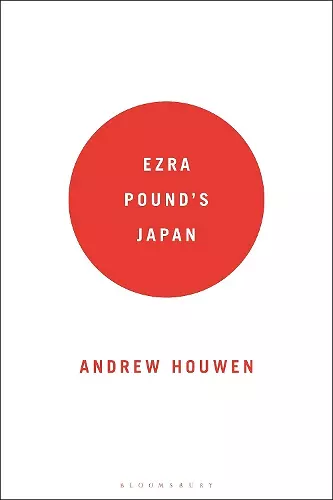Ezra Pound's Japan
Format:Paperback
Publisher:Bloomsbury Publishing PLC
Published:22nd Sep '22
Currently unavailable, and unfortunately no date known when it will be back

This book is the first to deal with the subject of Ezra Pound’s relationships with Japanese literature as a whole.
The first book to deal with the subject of Ezra Pound’s relationships with Japanese literature as a whole, this book provides a wealth of new scholarship on this subject, including on the 19th-century Japanese contexts that led to Pound’s interest in ‘hokku’ and Fenollosa’s No translations on which Pound based his own; significant original research on Pound’s Japanese friendships that enriched his understanding of Japanese literature; and an examination of all the explicit references to No in The Cantos in unprecedented depth. It demonstrates that the works for which Ezra Pound is most famous, such as 'In a Station of the Metro' and his epic poem, The Cantos, were shaped by his lifelong interest in Japanese literature.
A detailed, thorough, complete and successful account of Pound’s encounter with Japan rooted in primary sources. The book enlarges our understanding of Pound and Noh, ‘Hokku’ and Fenollosa not only in relation to The Cantos but to Pound’s entire literary universe. * Ira Nadel, Professor of English, University of British Columbia, Canada *
Ezra Pound's Japan gives readers a comprehensive and deeply learned account of the crucial, lifelong influence of Japanese poetry, drama, and friendship on Pound’s poetics. Andrew Houwen argues that Pound’s early experiments with Hokku were anything but mere poetic effect, instead realizing a genre first rejuvenated in the Meiji era and then subject to intensive translation in the later nineteenth century. Houwen draws on a range of historical material before and during Pound’s Modernist moment and pays close attention to theories of poetics and translation, providing the definitive account of this most popular of Japanese forms and its entry into Anglophone poetics. Equally, the revival of no (?) in the Meiji era and its transformative effect on Modernist poetics is a familiar story, but in his careful reading of no texts such as Hagoromo, Aoi no ue, Kagekiyo, Kumasaka, and Genji, and their role in the development of Pound’s Cantos, Houwen offers a foundational corrective to scholarly dismissal of this dramatic form on Pound’s later poetics. Instead, such key images as the twin pines of Hagoromo function within Pound’s text as structural principles, methods of orienting the wide range of historical and literary sources from the ur-Cantos of 1917 to the last glimpses of paradiso in Drafts & Fragments. This book gives sensitive account of existing scholarship and charts the full significance of Japanese literature in Pound’s poetic career: it will be the standard reference for some time. * Mark Byron, Associate Professor of English, University of Sydney *
ISBN: 9781350216808
Dimensions: unknown
Weight: unknown
280 pages